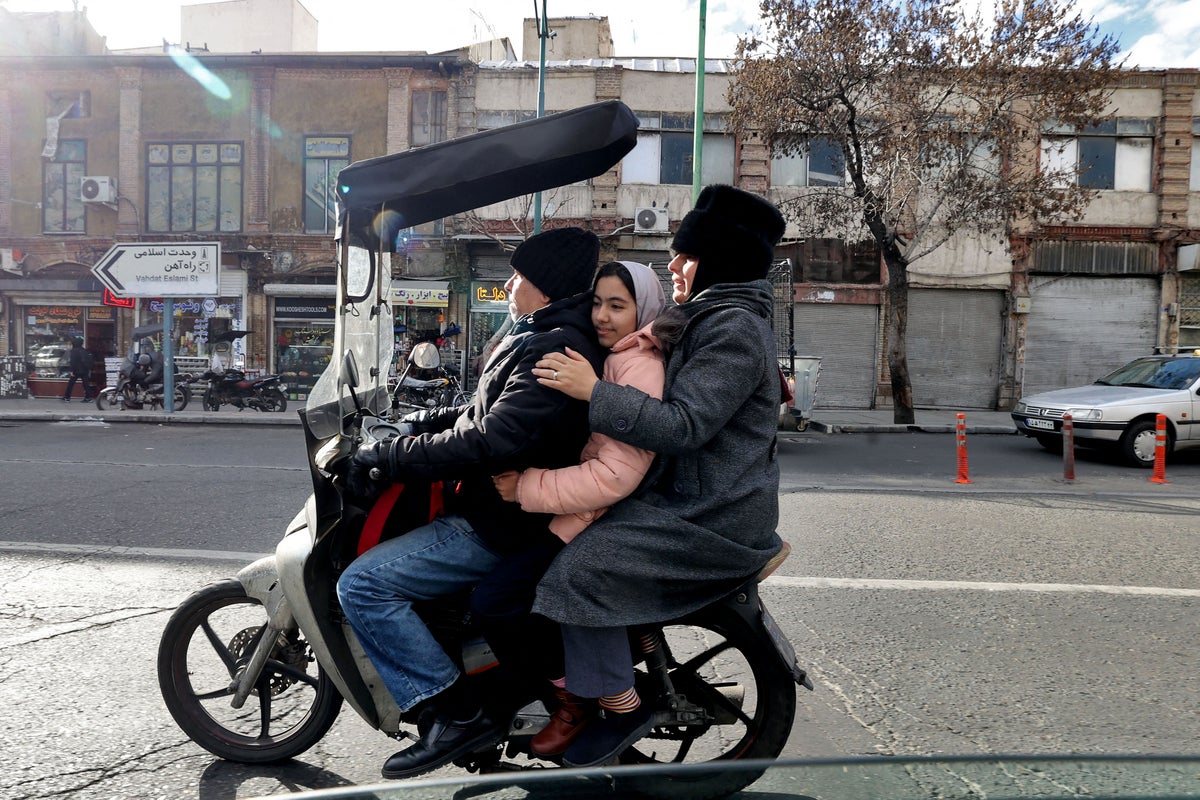
Security forces in Iran clamping down on demonstrations have illegally killed, sexually assaulted, and tortured children, with some detained for weeks without their families being informed, campaigners have warned.
Human Rights Watch said this constitutes a “pattern of serious violations” as it warned that Iranian authorities had infringed human rights while arresting, interrogating, and prosecuting children.
The prominent global campaign group has documented instances of government security forces “restraining, blindfolding, and torturing” children held in detention – stating that some of the families of children being held by security forces were not informed that they were in custody.
A secondary school student told researchers that members of the security forces pushed her onto a lit gas range while she was being arrested, leading to her clothes catching fire, and that she was beaten and whipped while being interrogated.
And a 17-year-old boy was left with bruises all over his body and bleeding from his anus after authorities beat and sexually assaulted him, according to one of the boy’s relatives.
Campaigners cited another example, wherein interrogators subjected a different boy to torture by pushing needles under his nails. Meanwhile two children were subjected to torture in a bid to force them to disclose the location of their relatives. A 16-year-old boy is said to have twice attempted to kill himself after being beaten, sexually assaulted, and given electric shocks.
Protests exploded across Iran after Mahsa Amini, a 22-year-old Kurdish woman, died in police custody in September last year, with women at the forefront of the protests, waving their hijabs, hurling them onto bonfires and chopping off their hair. Amini was detained by the morality police for allegedly infringing Iran’s stringent rules on hijabs.
Women’s rights are profoundly restricted in Iran, and wearing a headscarf is compulsory in public for all women, with those who do not wear a hijab, or have some of their hair on display while wearing a hijab, facing punishments ranging from fines to imprisonment.
Human Rights Watch warned that judges have blocked children’s families from choosing their lawyers, as well as convicting children on imprecise charges, and choosing not to put them on trial in the youth courts. This is despite the fact that these courts are supposed to preside over all cases involving children.
Tara Sepehri Far, senior Iran researcher at the organisation, said: “Iranian leaders have unleashed their brutal security forces to sexually assault and torture children, and have not spared children from ludicrously unfair trials.
“Over the past seven months, the authorities have not hesitated to extend the coercive power of the state to silence even children.”
Ms Sepehri Far warned that children who experience “horrific abuses in detention and at trial” could suffer “long-lasting harm”, as she called for the UN’s fact-finding mission to “prioritise investigating these abuses and recommend a path to accountability”.
An Iranian lawyer said he knew of 28 children charged with “enmity against God” and “corruption on earth”, which are indistinct, nebulous crimes that can be punished by amputation of the right hand and left foot or by death.
Iranian rights groups recorded the killings of 537 people by security forces during demonstrations that first rocked the country last year in the wake of Amini’s death. At least 68 children are included in this figure, which was released at the beginning of April this year.
Human Rights Watch previously reported the death of Nika Shakarami, a 16-year-old whose body was found by her family 10 days after she disappeared during protests in the capital city Tehran on 30 September.
The organisation also reported the death of Sarina Esmailzadeh, a 16-year-old who died after being beaten by security forces on 23 September in Gohardasht, which is in Alborz province. The authorities stated that both girls died after they jumped or fell from buildings, and have harassed and detained the girls’ relatives, according to Human Rights Watch.







